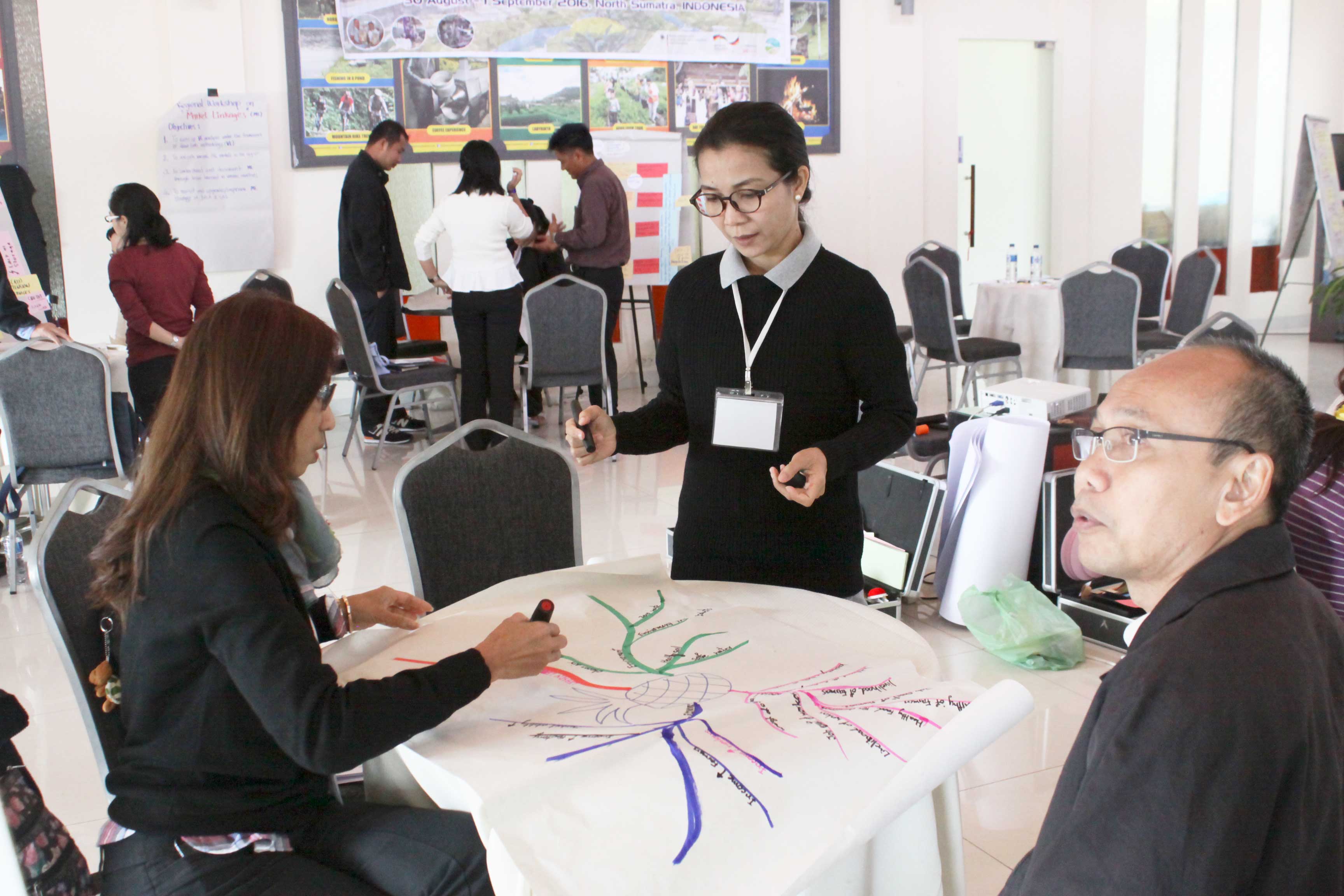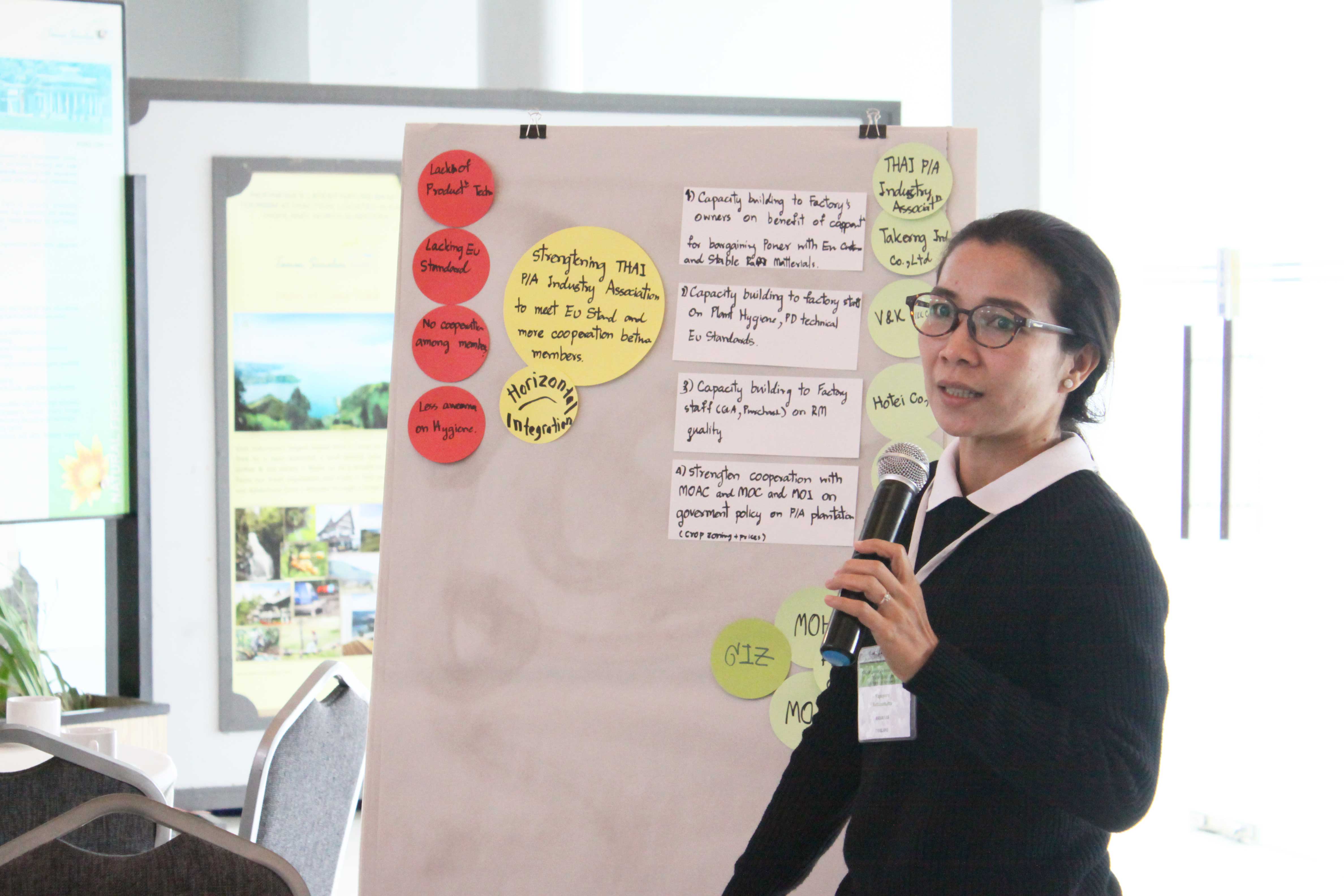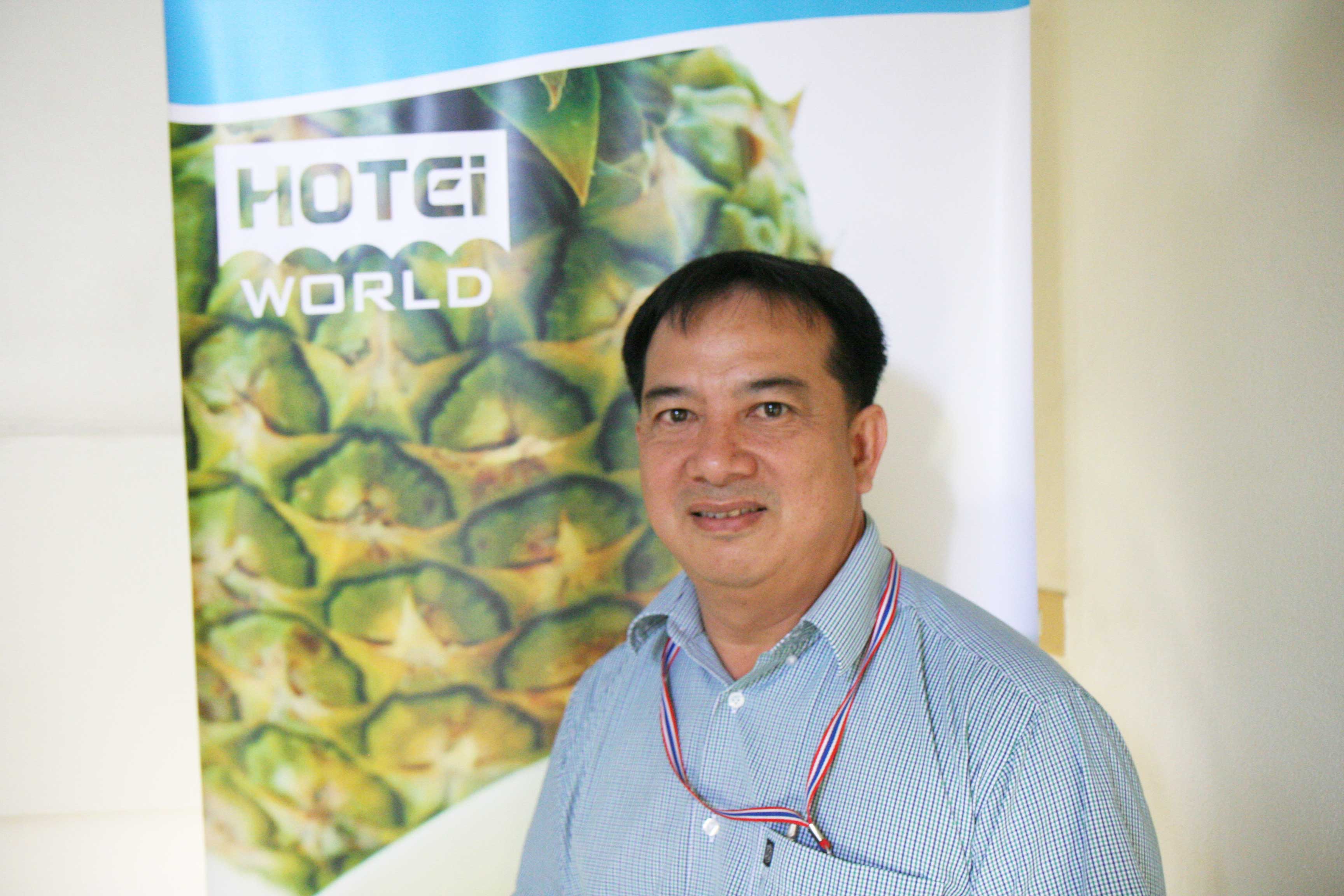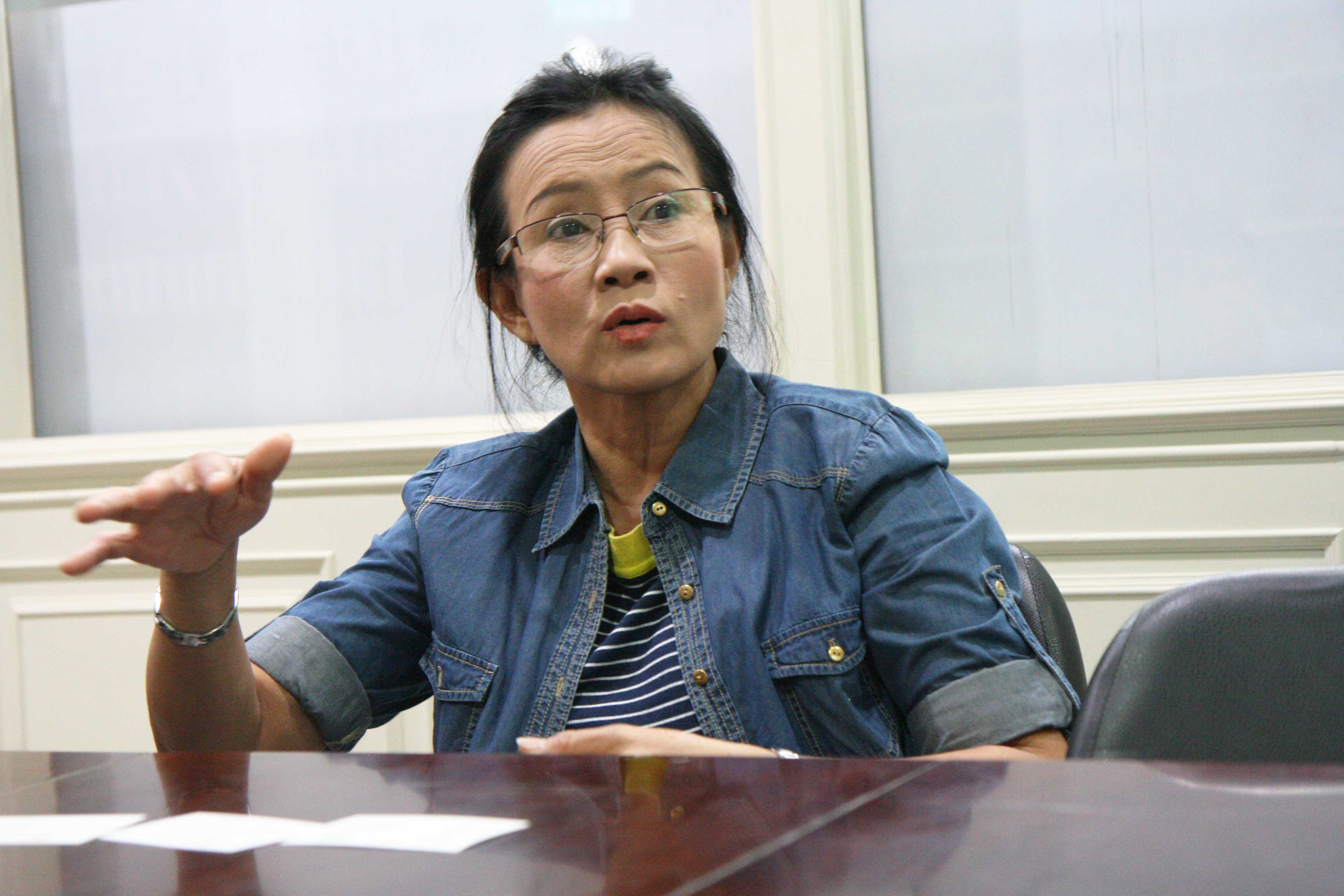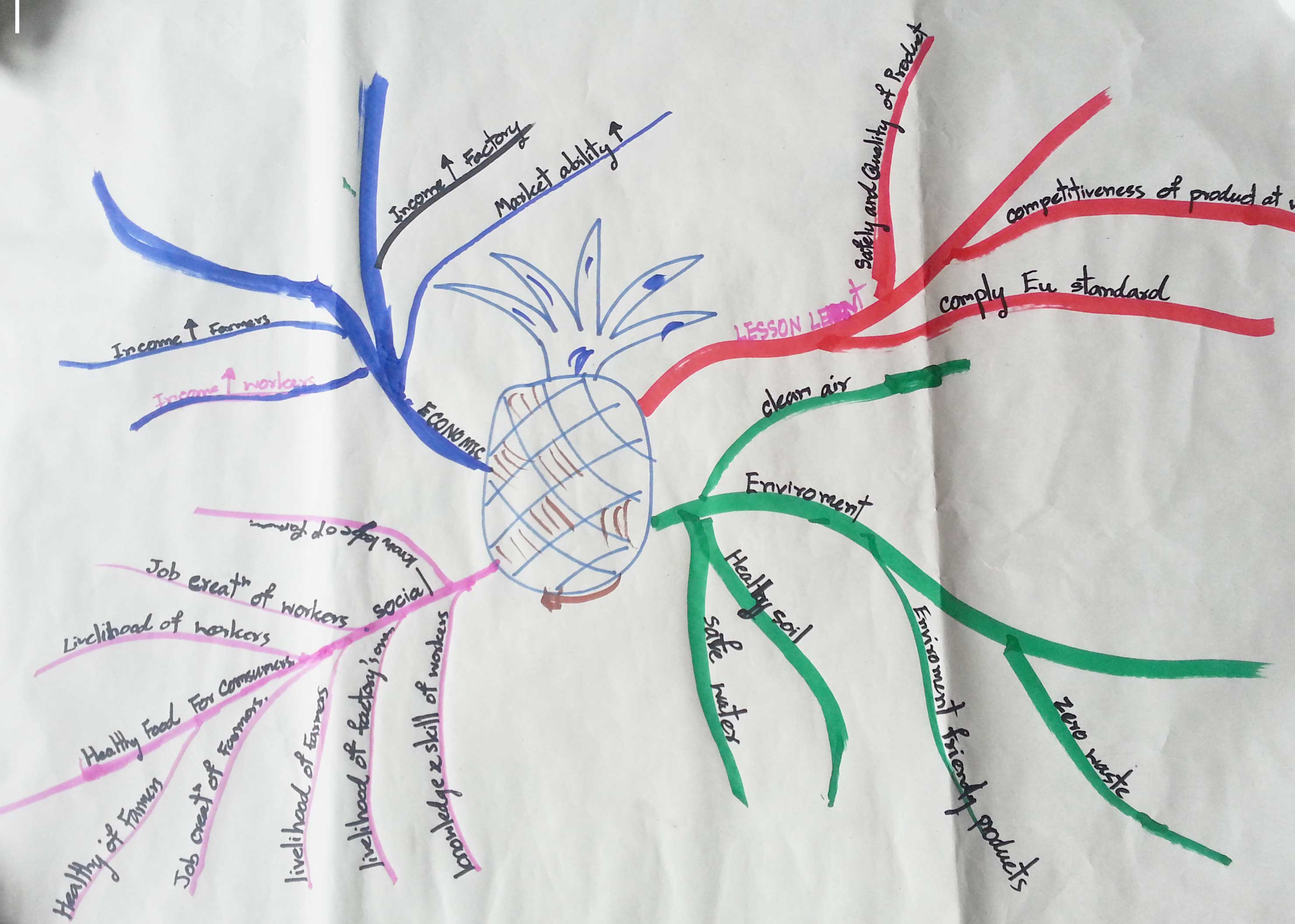Food safety project manager says an involvement of government bodies would complete her missing jigsaw.
‘I have missed but I have gained…’ Food safety project manager reflects on her past to better the future.
A question raised at a market linkage workshop I recently attended in Indonesia made me look back and ask myself: What could I have done better in my finished project ‘Improved product safety and quality for the Thai fruit juice industry’?
 Ended in April 2015, this project gave consultancy to six Thai national fruit processing factories to improve their product’s hygiene, safety and quality assurance, as well as authenticity in complying with the European self-control standard of Sure and Global Fair or SGF based in Germany. The pilot factories were mostly pineapple juice manufacturers. Thailand is the world largest exporter of pineapple juice concentrate.
Ended in April 2015, this project gave consultancy to six Thai national fruit processing factories to improve their product’s hygiene, safety and quality assurance, as well as authenticity in complying with the European self-control standard of Sure and Global Fair or SGF based in Germany. The pilot factories were mostly pineapple juice manufacturers. Thailand is the world largest exporter of pineapple juice concentrate.
Fruit growers who supplied raw materials to the pilot factories were trained on Good Agricultural Practices (GAP). Market surveys on Thai fruit juice safety and authenticity were conducted. Workshops to update the trends including issues and challenged of the fruit juice industry were organised and attended by roughly 100 participants from laboratories, associations and private companies.
But, none involved government agencies.
During the post monitoring and evaluation assessment in August 2016, two pilot factories in Prachuap Khiri Khan Province were visited and found that they increased their quality and assurance measures in meeting the international required standards and as a consequence wider their market accesses.
“Having internationally accepted standard guarantees trust with buyers,” said Mr. Somneug Wantem, Factory Manager of Pranburi Hotei in Kuiburi, “It eases trade barriers, increases market opportunities, and reduces economic loss from rejected products.”
Six pineapple growers from three families were met, and they said they received knowledge updates from the pilot factories through a regular visit. Some of them received funds from the factory for a two-year certificate study in a local agriculture college.
Mr. Amornthep Phummun, Pineapple Farmer in Kuiburi, Thailand said: “The manufacture asked if we were interested in learning about the good agricultural practices, and, we did. So, my wife went back to school through the financial support of the factory. Since then, my wife and I have had good experiments in applying what she learnt from her classes with the knowledge we gained from our parents, and grandparents.
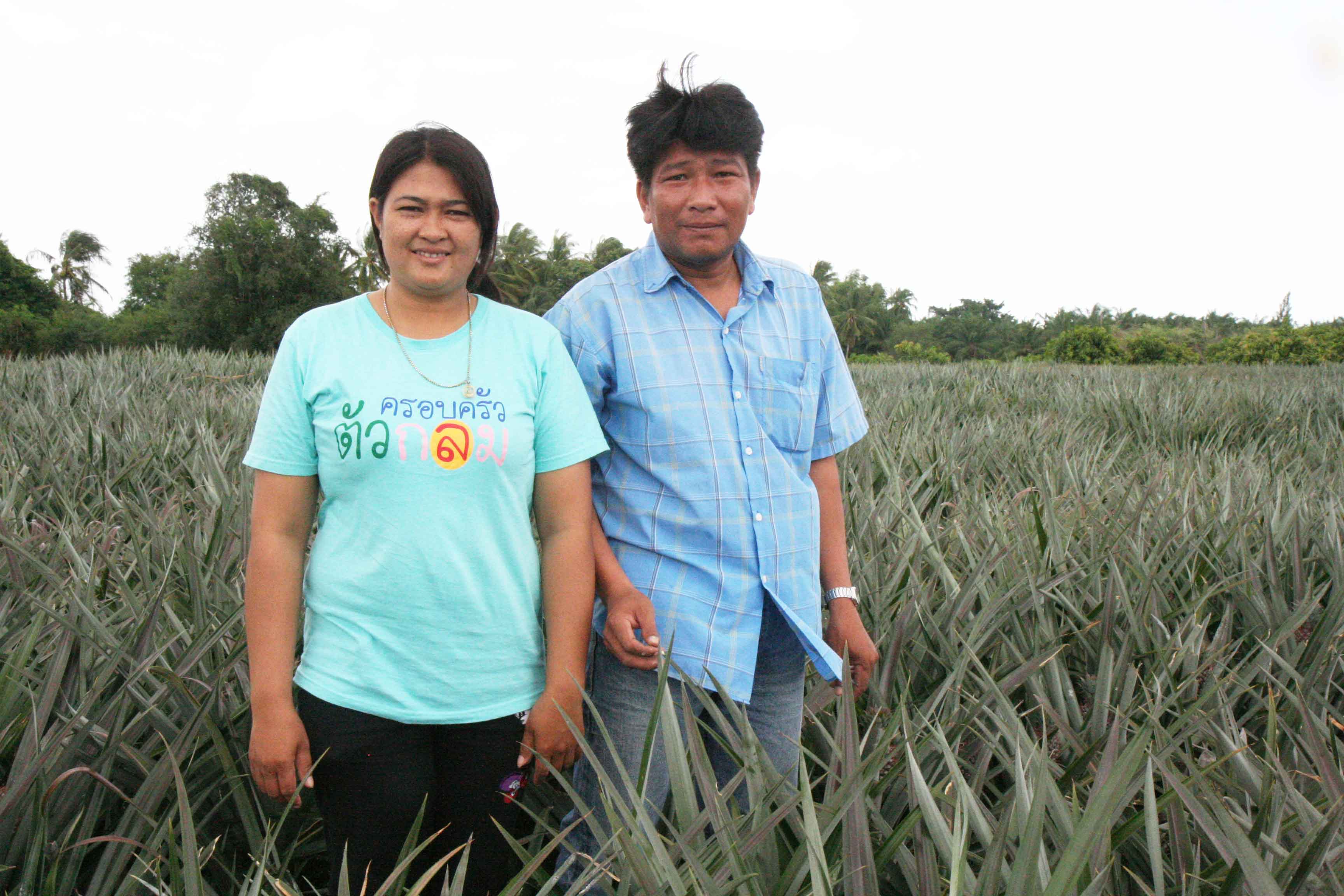
Mr. Amornthep Phummun (right) and his wife, Ms. Lookjieb Yimnoi, Pineapple Farmers in Kuiburi, Thailand
“Within the same plot of land we produce more pineapples but in less cost. We get better quality fruits and reduce the unnecessary chemical inputs. The soil quality becomes better, and we do not have to worry too much about the chemical exposure,” said the father of three.
Upon the meetings with the factory managers and farmers, everything seemed to fall into place, except the worried-free future. Due to drought and irregular pattern of climate, constantly high demand of concentrate fruit juice from the oversea markets, and lack of regulation and management plan overseen by the government authority, the sustainability of pineapple industry is still too far to reach.
Ms. Prathumporn Kitthakerng, Vice President of Takerng Pineapple Industrial, one of the pilot factories in Prachuap Khiri Khan Province, said: “Thailand should have agricultural crop zoning system for pineapple farming, including farmer registration, contract farming, and allocation of farming and food processing quota in order to foresee supply, quality and price of pineapple fruit.
“This will make everyone in the supply chain enjoying their lives better. Farmers and manufactures then do not have to worry about the fluctuation or shortage of pineapples, neither nor the high nitrate or low nitrate residues in pineapples, or the incredibly rocket prices or bottom flat prices of the fruits,”she said.
What did I miss?
To answer the question, “What could I have done better in my finished project ‘Improved product safety and quality for the Thai fruit juice industry’?”, I wish I had involved the government authorities in raising their awareness on the issues and challenges the farmers and manufactures had been having difficulty with.
I wish when they were informed, they realised and acted upon their power to improve the situations.
I wish I could continue the project and invite them into the forefront so that they would have heard better and reacted more responsively to help increase the livelihoods to the farmers and manufactures.
Thanks to the In-house Workshop on Market Linkages which makes me ponder about the missing links and key responsible actors who could support and make the fruit juice project deliver better outcome and impact.
I have missed, but I do not regret. I have gained more careful visions to think 360 degree to look for options and solutions to complete the gaps in the supply chain.
Ms. Napaporn is the project manager on food safety of ASEAN Sustainable Agrifood system.
By Napaporn Rattanametta and Rojana Manowalailao, ASEAN Sustainable Agrifood system

